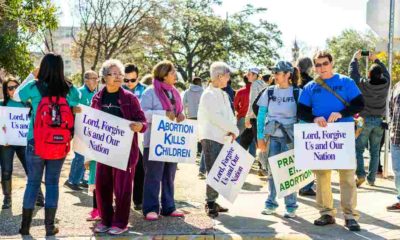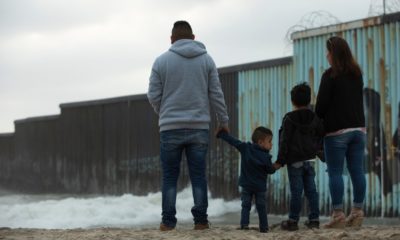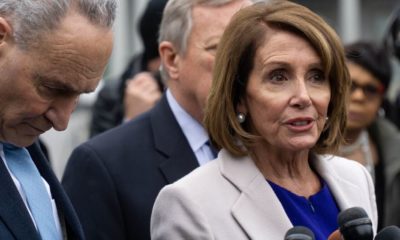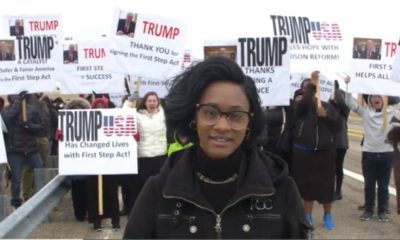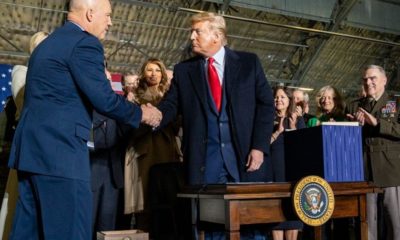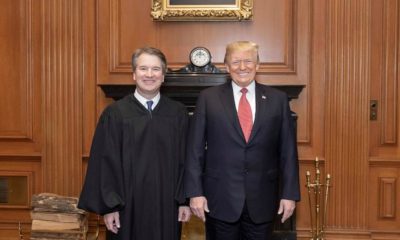Government
Supreme Court Finds That Black Men Are Right To Run From Cops
- The Supreme Court in Massachusetts is starting to recognize racial targeting by it's Police Officers.
- 63 percent of police-civilian encounters, in Boston, are with African-American males, yet they make up only a quarter of the cities population.
- Judges are starting to say that a person “fleeing” from the police is now not enough evidence to make someone guilty.
One small step for man. One giant leap for Black Lives Matters. It seems that the top Supreme Court in Massachusetts is starting to pay attention to the “disproportionate” stops of black men by the Boston Police Department. The conclusion? Black males may have a reason to run from the police.
The Massachusetts Supreme Judicial Court made a public statement on Tuesday that said, “Such an individual, when approached by the police, might just as easily be motivated by the desire to avoid the recurring indignity of being racially profiled as by the desire to hide criminal activity. Rather, the finding that black males in Boston are disproportionately and repeatedly targeted … Suggests a reason for flight totally unrelated to consciousness of guilt.”
This thought process by the Supreme Court was backed up by the conviction of Jimmy Warren. Back in December of 2011, Jimmy Warren, an African-American male, was arrested for the unlawful possession of a firearm, however, the terms of finding this out is what is making the court question the motives of the police.
Jimmy was walking with another man in the park when they were approached by police. The police were investigating a robbery at the time and Jimmy vaguely matched a description given to the police. The description said, “two black males wearing the ubiquitous and non-descriptive ‘dark clothing,' and one black male wearing a ‘red hoodie.” Jimmy fled from the police as they approached. Jimmy was apprehended and was convicted for a .22 caliber gun that was found in a yard that he had run through.
[wps_products_gallery product_id=”4347879194675, 4344220352563, 4333953876019″]
An investigation conducted by the American Civil Liberties Union found that, in Boston, black males have a disproportionated number of encounters with police. Yet, they make up less than a quarter of the population, they are targeted in 63 percent of police-civilian encounters.
Of course, there are two sides to every story. The Boston Police Department is saying that “the Department is targeting gang members in high crime areas.” Although, they did recognize that “there is still some work to be done to ensure we are closing the gap on these racial disparities.”
Then the American Civil Liberties Union (ACLU) came forward and said, “the racial disparity cannot be explained away by BPD efforts to target crime. The racial composition of Boston neighborhoods drove police-civilian encounters even after controlling for crime rates and other factors. They also found that Blacks were more likely than whites to be subjected to repeat police-civilian encounters and to be frisked or searched, even after controlling for civilians' alleged gang involvement and history of prior arrest.”
The court ended up agreeing with the ACLU.
Bill Evans, the Boston Police Commissioner, responded to the court's decision by saying, “I think they relied heavily on an ACLU report that I think was clearly way out of context. I'm a little disappointed that they relied heavily on a report that didn't take into context who was stopped and why. That report clearly shows that we were targeting the individuals that were driving violence in the city and the hot spots.”
The District Attorney's office in Suffolk County is asking the state's highest court to reconsider the ruling.
In any situation that involves the police, the state (or city), and the people, sides will be taken. The state usually tends to back the police department, and the people are usually left to back themselves. It's easy to see that this situation is not going to be one that is over quickly.
SEE RELATED: Angry Charlotte Protesters Clashed With Police Over Shooting

